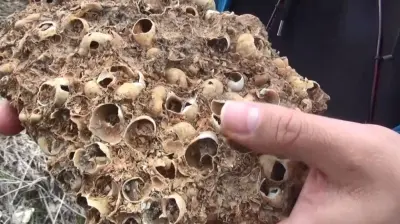This includes the ability to keep the fossils in the right conditions to maintain their value and quality, perform necessary cleaning and repairs on the fossils , as well as the ability to display and present the fossils in a beautiful and attractive way to the customers

Fossil supply and demand and trade in international markets is a complex area that is affected by many factors. Demand for fossils in international markets depends on various factors. Some important factors include interest in natural history, paleontology, education and research, collection and exhibits, home decorations, and Fossil related products. Also, the demand may also vary based on the type of fossil, for example, some types of fossils such as dinosaurs or various animals are more attractive to collectors and enthusiasts.
The first and most important thing for a fossil dealer is to have sufficient knowledge in the field of paleontology. This includes knowing the types of fossils, their extraction and preservation methods, the history and formation of fossils, as well as knowing the samples exposed to fraud and fakes. A fossil trader must have the ability to research fossils. This includes examining the fossil market, pricing, market trends, fossil history and knowing about famous mining sites. A fossil trader must know the fossil market well. This includes knowing about the possible buyers and sellers, competition, traders and collections related to the fossil industry. A fossil trader must have financial management skills. This includes financial planning, managing expenses and income, recording and documenting transactions, and the ability to manage finances on a small and large scale.
Each country has its own laws and regulations in the field of fossil export, import and trade. The fossil Stone trader must be familiar with these rules and perform his actions carefully. In addition, one needs to be aware of restrictions and prohibitions on specific fossils in countries. Having a strong network and connections in the fossil industry is very important for a fossil trader. This includes communicating with farmers, paleontologists, other traders and potential customers. A fossil dealer must be able to identify the original fossils. This includes the ability to detect fake, altered and non-genuine fossils. For this purpose, the businessman must be familiar with the methods and techniques of identifying original fossils and have the ability to distinguish between original and fake fossils.
The fossil dealer must have sufficient knowledge in the field of preservation and display of fossils. This includes the ability to keep the fossils in the right conditions to maintain their value and quality, perform necessary cleaning and repairs on the fossils , as well as the ability to display and present the fossils in a beautiful and attractive way to the customers. A fossil dealer must have the ability to properly evaluate and price fossils. This includes the ability to estimate a price based on the fossil's characteristics, its historical and scientific value, and its current market value. Fossil stone trader must have the ability to choose and buy high-quality and suitable fossils. This includes the ability to identify and evaluate high-quality fossils, recognize suitable buying opportunities, negotiate and negotiate with vendors.
Fossils are mainly extracted from areas that have masses and Rock layers with the richest fossils. Areas such as East Africa, South America, Asia and Australia have rich fossil mines. Also, fossils may be accidentally obtained through construction, road construction and excavations in the fields. Each country has its own laws and regulations in the field of export, import and trade of fossils. Some countries may impose restrictions and bans on the trade of certain fossils, especially if the fossils belong to endangered or protected species. Fossil stone traders should be familiar with the laws and regulations related to the export and import of fossils in different countries and plan their actions accordingly.




